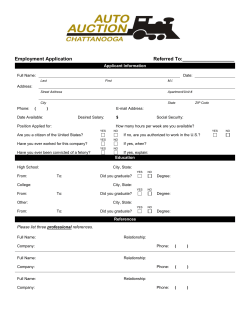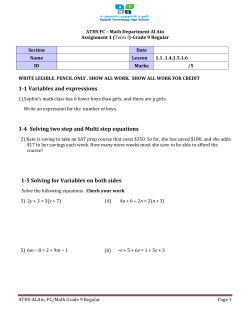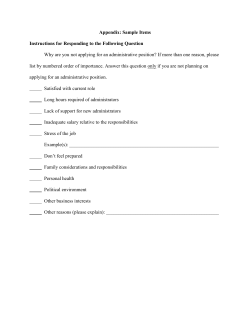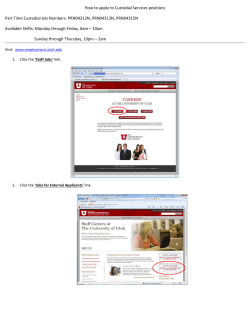
SPORT l Issue No. 8 l Salary cap breaches
SPORT l Issue No. 8 l Salary cap breaches May 2015 Perth Glory have just admitted to salary cap rorts over the last three seasons. The Football Federation of Australia have imposed penalties including a substantial fine of $269,000 and expelling them from the A-League finals series. We have now seen major salary breaches by high profile clubs in A-League, NRL and AFL. Rugby Union has a much softer view to salary caps, it does not have the rigidity in the rules nor does it have the resource to investigate breaches. What does it say about Australian sport where leading teams involve themselves in salary cap rorting? Is it the case that the fundamentals of the salary caps are flawed? Is the salary cap rorting that is identified the whole story or is it simply the tip of the iceberg, what is actually uncovered? Are these rorts the actions of rogue CEOs acting alone or are those CEOs just those that aren’t successful at getting around the cap and were caught? Do clubs and CEOs feel the need to rort the system because everyone is rorting the system and if you don’t you will fall behind - surely this cannot be the case. There are constant rumours of salary cap breaches across the codes. In the case of Perth Glory and the Melbourne Storm, both of the CEOs took responsibility and fell on their sword, in many ways attempting to take full responsibility and to avoid the organisation taking responsibility. When we talk about breaching the salary cap rules, (which are put in place in an attempt to equalise the competition and to make all teams competitive) why don’t we call this cheating? Why are euphemisms like rorting and breaches used? Mullins Lawyers l eNews Publications l Page 1 Surely a breach of the salary cap rules is cheating at an organisational level. Australians need to have confidence that sport being played is fair and without cheating. Sporting organisations and their Boards need to do better. In my opinion, Boards and their Chairmen are not taking sufficient responsibility for this type of behaviour. Surely if we are talking about effective good governance in Sport the first thing that any proper governing body should ensure is that their organisation are not cheating in any respect. Footballers may make mistakes, exhibit errors of judgment, get drunk, make fools of themselves and for this they are quite rightly roundly criticised and disciplined, but from a scandal perspective surely institutional cheating must be worse. Boards must put in place procedures which ensure that the club is acting within the rules whether that is drugs, salary caps, concussion testing or any other dimension. It is not good enough for Boards or Chairmen to blame the CEO or the football department. This is not easy but team supporters deserve better. John Mullins Managing Partner Mullins Lawyers t +61 7 3224 0210 jmullins@mullinslaw.com.au
© Copyright 2025











